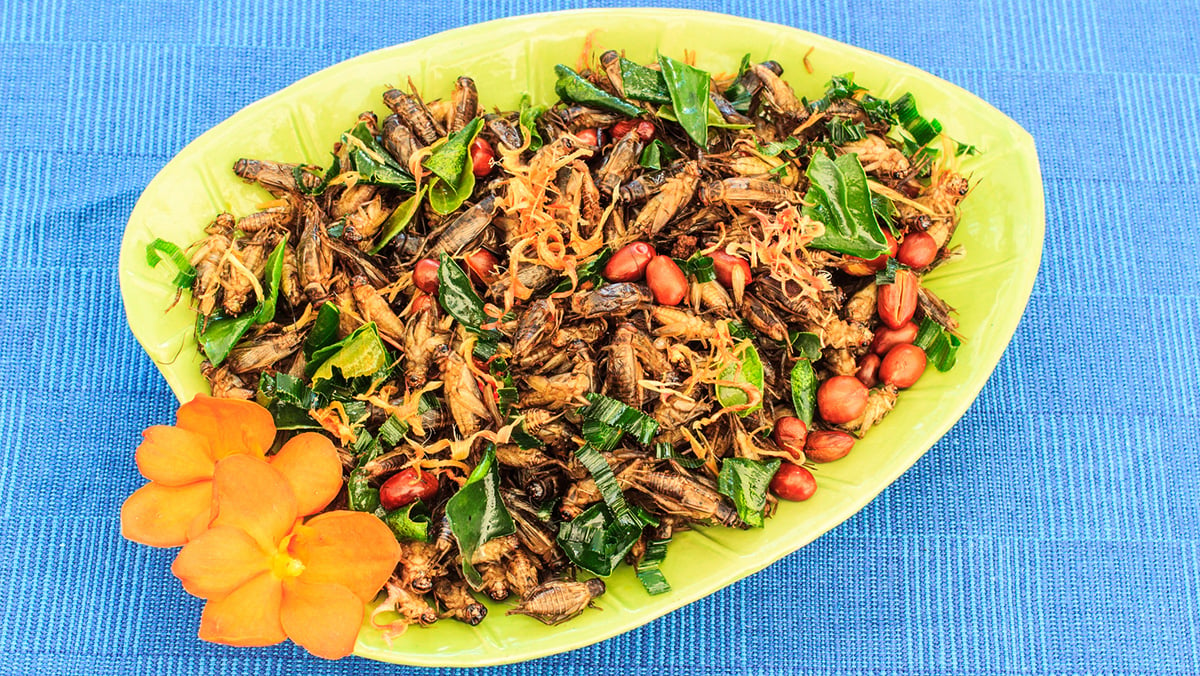How to Encourage Western Consumers’ Acceptance of Insects
FIRST New
 By Christine Blank
By Christine Blank
Consumers are becoming increasingly keen on the idea eating insects but there are still hurdles to overcome, according to an expert panel in the FIRST session, “The Role of Insect Proteins for Nutrition, Environment and Artificial Intelligence.”
While consumer acceptance in the Western world is “quite low,” research shows it is growing, says Mariam Nikravech, PhD candidate at the University of Berlin’s Dept. of Education for Sustainable Nutrition and Food Science.
“There is an emerging trend for insects as food that has been observed whereby they're considered as an exotic luxury product to be consumed as part of a culinary experience,” she says. Young males are particularly willing to try insect products, according to research.
Nikravech and other researchers at the University of Berlin are investigating the premium that consumers will pay for insects. Via a hypothetical choice experiment involving 750 consumers in Germany, Italy, and Portugal, “We try to identify the price that consumers are ready to pay for a specific attribute of insect-based food products, such as the form, the continuance degree, or whether or not they have organic labels,” she says.
However, in order for more of the population to be comfortable with eating insects, suppliers and educators must first increase “the acceptance to taste insects at all,” Nikravech notes. “Then, the second goal would be to increase the acceptance of insects as part of the regular diet.”
To overcome the disgust in order to increase acceptance, marketers are utilizing a positive association with edible products as a marketing approach.
“The most important aspect to increase the consumer acceptance is the taste,” explains Nikravech. “The insect-based food has to taste good right from the first experience on. But, before reaching that point of tasting the insect, there's a need to create a positive taste expectation.”
Associating the insect with a known familiar carrier product, flavor, or dish is one of the best ways to garner trials. “For instance, savory preparations appeared in several studies to be more appropriate to increase the acceptance of insect-based food,” Nikravech notes.
Another route is making the insects invisible through processing into more conventional forms or adding the insect proteins to a new food product, she adds.
Consumer acceptance can also be increased by educating them about insects’ high nutritional profile. Dried insects have a much higher protein content than fresh lean meat and eggs, while being much more sustainable.
Register for FIRST to view this session and 100+ more—available on demand through Dec. 31, 2021.
Christine Blank is a freelance journalist based in Orland, Fla.
Digital Exclusives

10 Food Trend Predictions for 2022
The editors at Food Technology magazine, published by the Institute of Food Technologists (IFT), have announced their predictions for the hottest food trends for 2022.
Food Technology Articles

Taking Your Order
An infographic describing consumers’ dining and ordering preferences at restaurants.

Omnivore Study Seeks Optimal Whole Food Fiber Blend Pregnant People Not Getting Enough Omega3s
Innovations, research, and insights in food science, product development, and consumer trends.

Small Categories, Big Growth Potential
A look at small food categories with high growth potential.

Vickie Kloeris Shares NASA Experiences in New Book, Consumers Are Confused About Processed Foods’ Definition
Innovations, research, and insights in food science, product development, and consumer trends.

Top 10 Functional Food Trends: Reinventing Wellness
Consumer health challenges, mounting interest in food as medicine, and the blurring line between foods and supplements will spawn functional food and beverage opportunities.
Recent Brain Food

March Content Spotlight: Sensory Science
Stay up to date on the latest health and nutrition topics and trends with IFT's featured resources, from blogs to peer-reviewed articles to on-demand videos.
The Future of Sensory Science: An Intergenerational Conversation
An emerging researcher and a seasoned sensory scientist discuss how the study of human perception is evolving and what it means for the science of food.
January Content Spotlight: Consumer Insights
Stay up to date on the latest consumer insights topics and trends with IFT's featured resources, from blogs to peer-reviewed articles to podcasts.
Consumer Outlooks in an Age of Angst
Food Technology Executive Editor Mary Ellen Kuhn explains how tough times will shape consumer behaviors in 2024.
August Content Spotlight: Sensory and Consumer Sciences
Sniffing around for resources on sensory and consumer sciences? Here's a taste of IFT's recent featured content on the topic.
